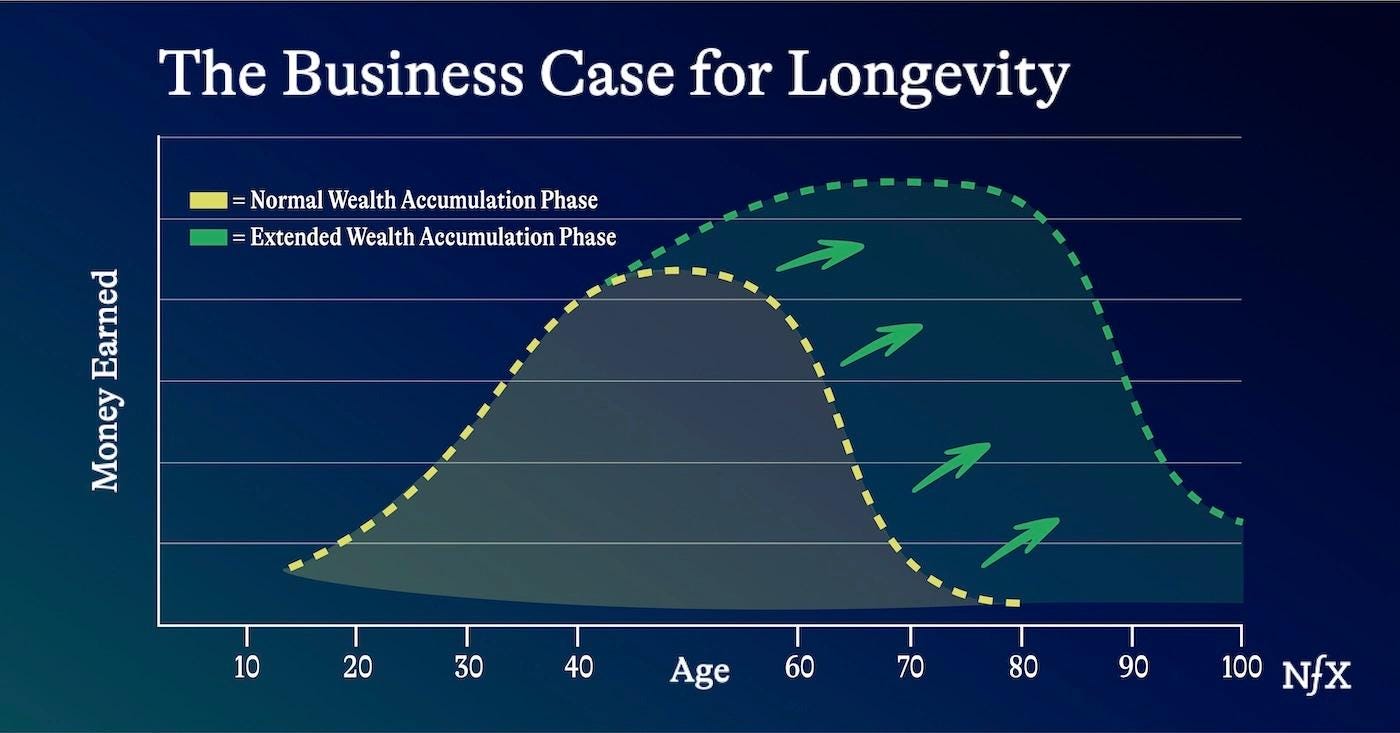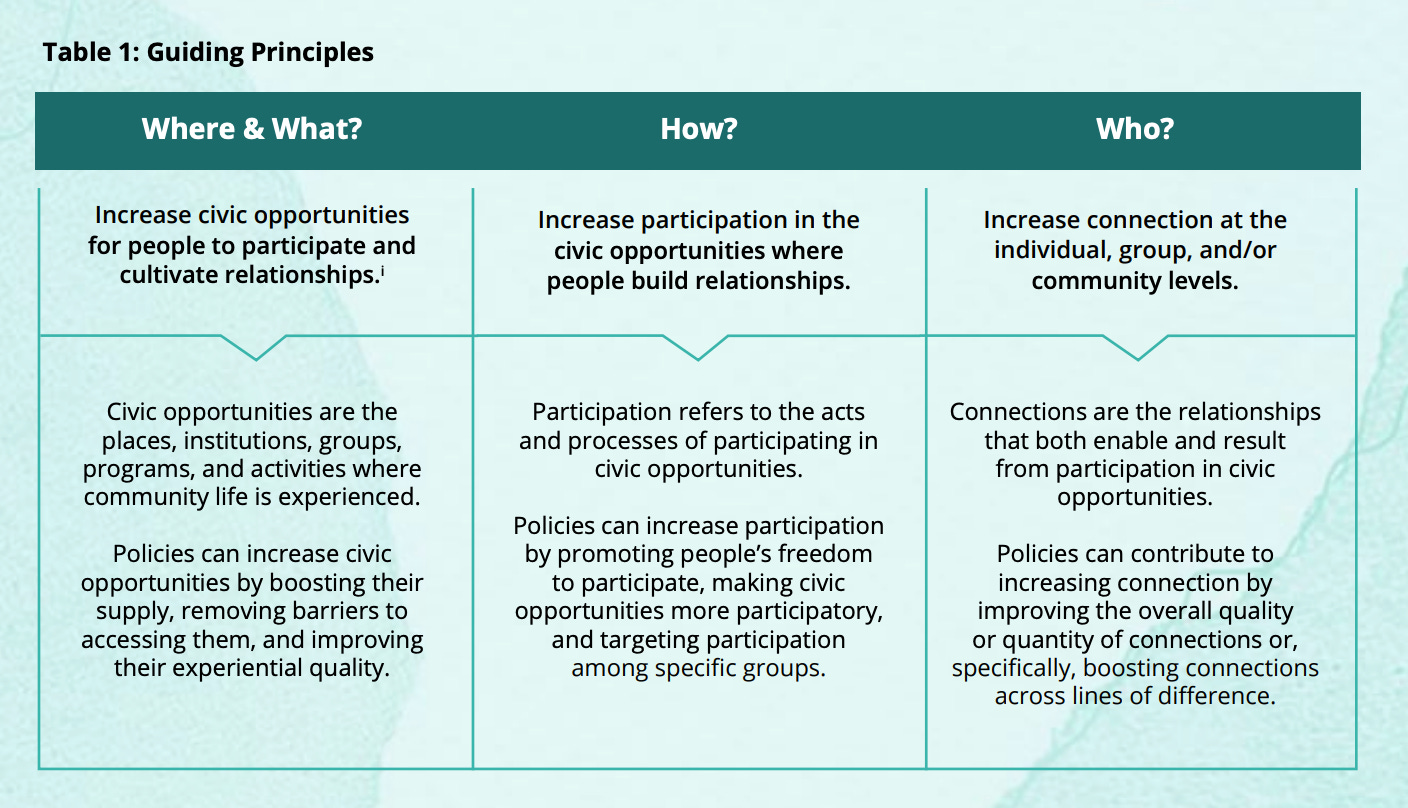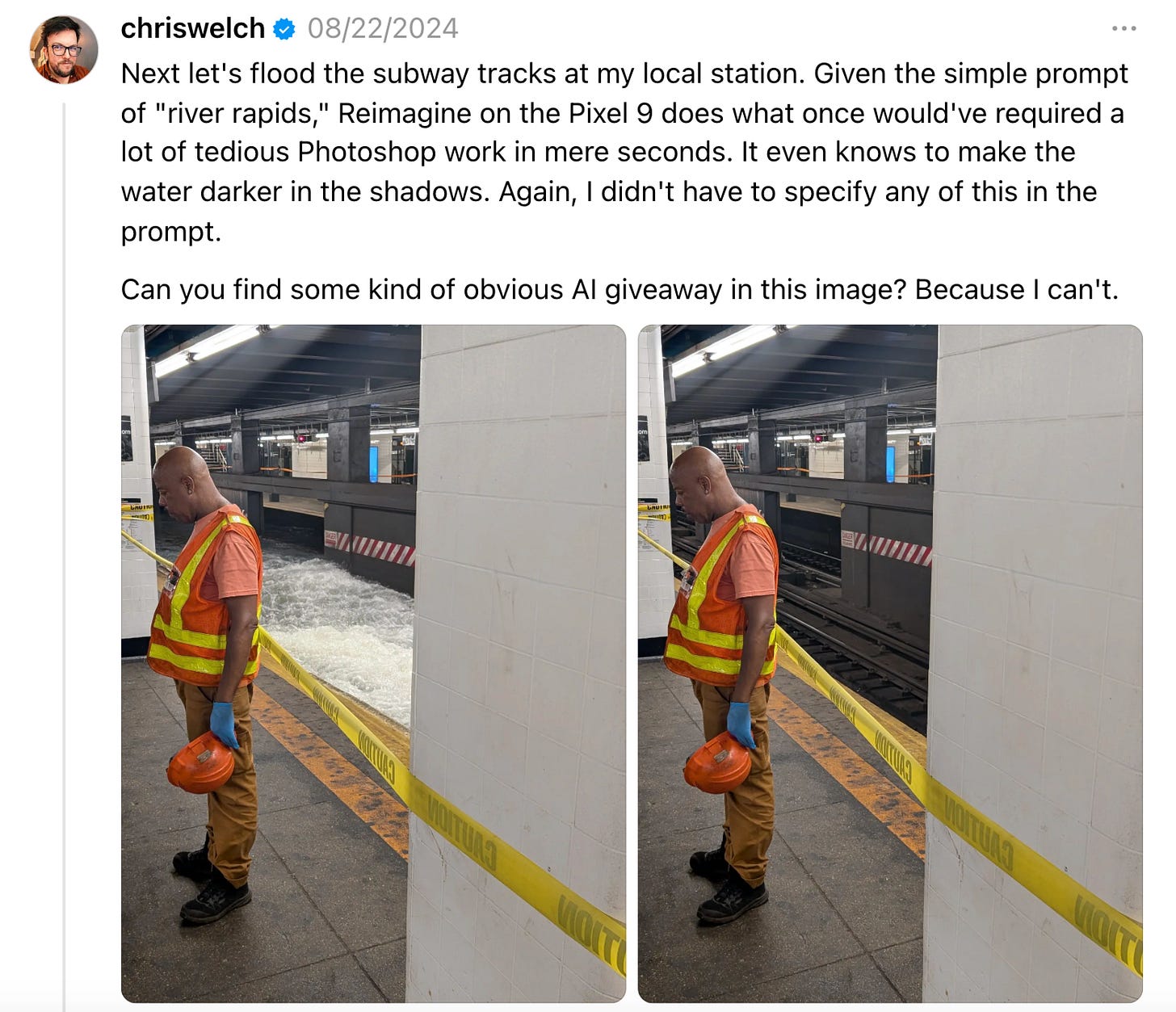Four For Friday | Sept 13, 2024
LF139 | NfX on the longevity opportunity, the everyday impacts of climate change, don't believe your eyes, building 'connective tissue' locally + AI-in-aging meta review
Welcome to Looking Forward’s Four For Friday. Four things that have piqued my interest this week, together with a bonus: AI Tip of The Week. Enjoy!
The business case for longevity
Always good to see interest in longevity from a leading VC. I recall a meeting in Palo Alto about a decade ago with a junior associate from one of the storied VC names, and the response of this (young, sweater-vest-wearing) associate was, ‘aging isn’t an interesting market because the lifetime value isn’t very high’.
So refreshing, that this post from NfX starts with, “Longevity is the biggest market in the world”. It takes the glass-half-empty sentiment from my preppy friend and recognizes that extending healthy lifespan is not only, but a massive economic and societal opportunity; the largest one there is, in fact.
The piece suggest that’s the case because longevity improvements are relevant to everyone, it boosts other markets (e.g. more money for consumption, finance and travel), and the ways to part people with their money in pursuit of longevity are essentially limitless.
So What? More mainstream validation for the importance and opportunity of longevity, although probably more focused on biotech than most of LF’s readers.
The every day impacts of climate change
Along the lines of the ‘baby killing pesticides’ story from last week’s LF, the NYT has a piece going over some of the less dramatic, TV-footage aspects of climate change that are impacting us today. Things as simple as slipping off a ladder. It covers some stats from a new book, Slow Burn, and makes for eye-opening reading:
A reduction in student learning by 10% over the course of a year. The gap is worse for Black and Latino students in hotter parts of the country.
Already air pollution claims 7m deaths a year, and it’s estimated that forest fires in the US claim a further 5-15,000 alone.
Rising temperatures this century may lead to 1.6 million additional cases of aggravated assault and 200,000 additional rapes in the United States.
A naval officer makes an average of 11 or 12 mistakes per hour in translating Morse code when the temperature is between 85 and 90 degrees, a British study found, but 95 mistakes per hour when the temperature rises to 105 degrees.
So What? Some good new measures, metrics and ways to think about impact as we’re looking into megatrends.
Building ‘connective tissues’ across our communities
This long, deeply researched research project aims to help governments do a better job of improving the ‘connective tissue’ of US society, acting locally in villages, towns and cities. (Hat tip Katey W. for the find).
This tome is not aimed to be instantly meme-able on Instagram, but has a lot of practical suggestions for different stakeholders involved with building community locally. The overall framework is that governments can rebuild connective tissues by boosting Where connections happen (e.g. physical places), How they happen (e.g. making it easier to participate) and Who participate (e.g. improving the quantity and quality of connections).
So What? This report has a smorgasbord of practical research and ideas (e.g. turning Rockefeller’s Chief Resilience Officers to Chief Connections Officers) that will be relevant for policy makers and civic activists alike.
The remarkable, unreal world we’re entering into
A post with some amazing images created in a few seconds by entering a prompt into the new Google Pixel 9, that comes with an embedded AI tool called Reimagine. This basically lets you turn any image into anything else.
So What? Prepare for some craziness in the period between magical tech manipulations and our cultural adaptation to it.
Bonus - AI Report of the Week
Literature review about AI in aging.
That’s all for this week. As always, feedback welcome. Feel free to share insights or links of interest.
- Stephen





